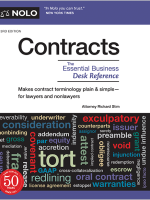The rise of labor unions toward the end of the 19th century caused concern among employers. Business owners believed that strong labor unions would negatively affect the way they operated their companies. Higher wages and better working conditions were two of the primary focuses of labor organizers that could directly affect worker productivity and profit margins. Yellow dog contracts became a popular method used by business owners to deter their workers from joining labor unions.
Yellow dog contracts are now illegal in the United States, but they were a popular tactic for business owners from the late 1800s until shortly after the Great Depression. Here are three little-known facts about yellow dog contracts.
The Supreme Court refused to outlaw yellow dog contracts
Employment agreements containing a clause making it a condition that workers could not join labor unions or, if they were already in a union, they had to resign their memberships or lose their jobs were referred to as yellow dog contracts. The Supreme Court had the opportunity to put an end to such anti-union tactics in 1908, but the Court refused to uphold the constitutionality of state and federal laws aimed at prohibiting employers from insisting that workers sign yellow dog contracts.
The decision by the Court was consistent with other rulings it made at the time concerning the relationship between government regulation and business in this country. The prevailing view among the justices was that government should not intrude on freedom of contract. It was believed that employers and their workers should be free to negotiate labor agreements between themselves without interference from the government.
Employers claimed workers had the right to refuse to sign yellow dog contracts
Bolstered by support from the Supreme Court, employers challenged labor union opposition to yellow dog contracts by asserting that the agreements were negotiable and workers were not forced to sign them. According to the unions, few workers who refused to sign the anti-union employment agreements were hired lending support to the argument that workers did not have a choice. The economic conditions existing at the time left workers in need of employment little choice when it came to signing yellow dog contracts.
Labor unions prevailed, but the terminology continues in use
The labor unions managed to get Congress to pass legislation in 1932 outlawing yellow dog contracts and other types of employment agreements containing restrictions on a worker’s ability to join or retain membership in a labor union. Although the success of the labor movement put an end to yellow dog contracts, the term continues to be used today to describe a much different business practice.
It is common for employers to require the signing of non-disclosure agreements and non-competition agreements by employees as a condition of employment. Non-disclosure agreements prohibit workers from disclosing trade secrets, customer lists and other sensitive information when during and after their term of employment.
Non-competition agreements prohibit workers from going into business or being employed in positions that would put into direct competition with their former employer. Non-disclosure and non-compete agreements are sometimes referred to as yellow dog contracts.

